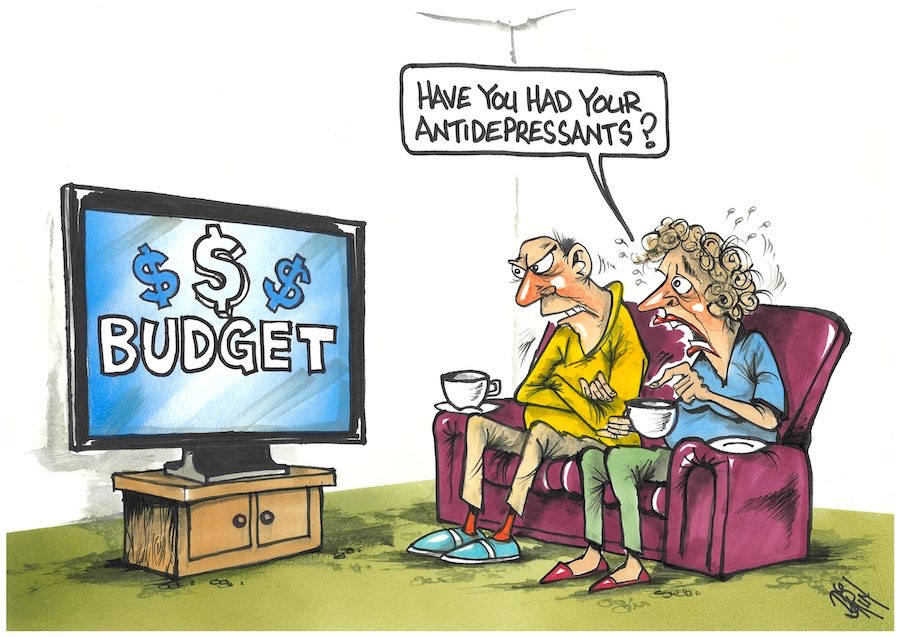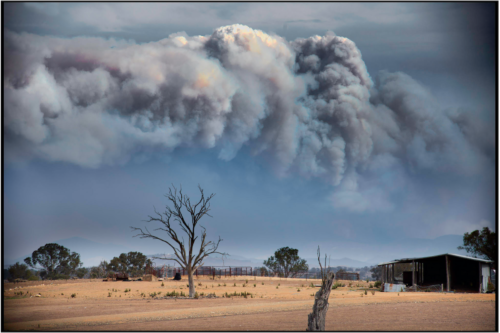Letter writer RON EDGECOMBE wishes more of the community would start to openly oppose the spending on light rail to the detriment of basic services.
BEFORE the October 22 Federal Budget, apparently Andrew Barr proposed that an additional Medicare levy be imposed on high-income earners to provide additional funding for health services (principally hospitals) for all states/territories.

The absolute hypocrisy of him to propose this given that we all know where (as confirmed by Batman and Robin) all proposed funding for Canberra hospitals has been redirected to, is beyond the pale.
Additionally, you will have no doubt noticed in the wash up of this federal Budget in respect of new infrastructure funding for the ACT, the feds funded $85.9m for the ACT.
According to Infrastructure Australia, this funding was initially allocated by IA to three key road projects in Canberra’s south. However, the ACT government indicated its first priority was funding for light rail phase 2A. Coincidentally, the final outcome was funding of $85.9m for light rail. The ACT auditor-general’s report on this project was damning, but how much more discretionary funding might be reallocated to this phase, let alone phase 2B (extension to Woden).
As a former senior public official, I am appalled at this approach and I only wish that more of the community would start to openly oppose this spend to the detriment of basic services.
Ron Edgecombe, via email
Canberrans treated as suckers on light rail
SO, Katy Gallagher is stumping up another $85.9 million on top of the $132.5 million promised by the Opposition for a total federal contribution of $218.4 million for Light Rail Stage 2A.
Apparently not satisfied nor repentant about having loaded ACT taxpayers with $1.7 billion for Stage 1 of light rail (purely for political reasons), she now adds to the burden for Stage 2; $218.4 million is a substantial sum and, if all applied to Stage 2A, would constitute 31 per cent of the most probable $700 million for Stage 2A.
However, with the government intention to proceed to Woden, $218.4 million is only 7.25 per cent of the most probable cost of $3 billion for all of Stage 2 (construction plus 20 years of operations and maintenance). Canberrans would still be looking at a bill of almost $2.8 billion for Stage 2, for a tram that will take twice as long as the current rapid buses and with a Benefit to Cost Ratio (BCR) less than for Stage 1, which was said by the Auditor-General to be only 0.49.
The government has not bothered yet (if ever) to produce a business case for Stage 2. It has done so for Stage 2A but it’s not worth the paper it is written on. Most Canberrans are being treated as suckers on light rail.
Max Flint, co-ordinator, Smart Canberra Transport
Time to start talking, Chris Steel
TRANSPORT Minister Chris Steel still won’t confirm an aimed-for 2026 completion date for the 1.7-kilometre, Stage 2A rail extension project, despite federal officials answering to this in a recent Senate estimates session (“Steel fails to confirm tram completion date”, citynews.com.au November 1) .
Yet their answers must have been linked to official advice received from the ACT government. Nor has the minister provided any update on the now months old inquiries into CIT’s $8+ million expenditure for an external consultant to deliver years of highly questionable staff development and training, and institutional “support” and mentoring.
Given that an audit report on this series of CIT contracts may appear soon, it would be helpful if the minister could then also be quite transparent about the broader implications for ACT government procurement standards and practices.
Ratepayers should also be advised if some of that funding approved by CIT can be recouped. If some committed yet unspent funds can be clawed back, perhaps they can be used to fill a few potholes more effectively.
Sue Dyer, Downer
Accept democratically made decisions
BEC Jenson wrote (October 27) that she resents paying rates because they pay for light rail.
The famous American jurist, Oliver Wendell Holmes, wrote; “I like to pay taxes. With them I buy civilisation.”
He was not fully correct. Taxes alone will not buy civilisation. What is needed is a consensus that, as a community, we can make decisions in our democracy and that this decision-making process will be respected.
There are few major projects that can be completed in just one term. No hospital, no major transport system, no major public housing project.
Light rail has been put to the electorate not in just one election but two. It is needed as we respond to the climate emergency and we can, unfortunately, see the human and economic cost of this nightly on our TV screens.
Leaving rail unfinished would result in a massive waste of public resources. The human cost of this would fall not on the residents of the fine suburb of Hughes, but on those who live on our coastal plains and near our mighty inland rivers and, from bushfires, in all regional and farming communities.
At some point, a functioning democracy requires the acceptance of democratically made decisions – even those that you violently disagree with.
Noel Baxendell, Holt
Stanhope ‘wrong’ on Christmas Island rights
JON Stanhope’s memoirs regarding his time as Administrator of Christmas Island (“Drink, fish and forget Canberra”, CN November 3) would make interesting reading for several reasons, yet we should not allow his personal peccadillos to cloud democratic realities.
It is insulting to hear the claim that Australians have fewer democratic rights than citizens of authoritarian China.
Residents of Christmas Island are able to vote for their local council, as arranged under WA law. Stanhope may hold concerns that the electoral arrangements skew results towards a particular outcome, yet that is a different issue to democratic rights.
Christmas Island residents also vote in Australia’s federal elections, for candidates seeking to represent the NT. Stanhope may believe it incongruent for NT politicians to represent a federal territory that is, in practice, subject to WA law, yet that is not an issue of democratic rights.
Stanhope’s time at Christmas Island was notable for certain contributions, especially the way he highlighted the issue of aged care, yet it is pure hyperbole for him to claim Christmas Island is less democratic than China.
Matt Watts, via email
When it comes to emissions, size matters
IN the “Letters” column (CN October 27) Max Flint extols the benefits of nuclear generators (possibly he means small modular reactors – SMRs) in providing emissions-free electricity.
Elsewhere, proponents of SMRs regularly insist they provide cheap and immediate power and are better than renewables.
Could Mr Flint provide evidence, in full detail, on the lifetime installed cost per megawatt-hour, of SMR power and the earliest it could be available in Australia?
He should remember that the task of reducing emissions towards zero is deadly serious and extremely urgent. CSIRO, the IEA, the UNFCCC and many other expert organisations are constantly telling us this. Equally urgent is to reap the benefits of energy efficiency – something Australia is pathetic at doing.
Mr Flint’s last paragraph also repeats the hoary old canard that Australia’s emissions, which are 1.2 per cent of world total (US Energy Information Administration 2019) are inconsequential and so, the argument goes, even if we reduce them to nothing, this would “have zero effect on global warming”.
It might surprise Max to learn that if we add up all countries whose emissions are equal to ours or less, collectively they amount to 25 per cent of world emissions. Countries in the “1.2 per cent or less club” include the UK, Italy, France and Turkey. Brazil and South Africa just miss out; they each produce 1.3 per cent.
If Australia gives up, why shouldn’t all those other countries, too? Such a position would be amoral. We all live on one planet. If we increase the emissions cutoff to 2 per cent – presumably still negligible in Mr Flint’s eyes – we’re looking at 38 per cent of world emissions. Germany is amongst that 2 per cent club.
I guess Mr Flint pays (or used to pay) tax. Did he write to the ATO and argue that his contributions were a drop in the ocean and on that basis, he should be exempt?
Peter Lyons, Kaleen
Kangaroos: Nothing to hide, right?
FOR the many residents who want to save Canberra’s kangaroos, the “Keeping up the ACT” comic strip (CN October 27) was particularly on point. A tourism campaign featuring our national icon that is routinely slaughtered every night around the country is so hypocritical.
The lives lost are certainly not “dopey bastards” though, they are mums, dads, uncles, aunties, brothers, daughters, and family members.
I found Mike Quirk’s letter (“Barr’s ‘outrageous’ claims based on what polling?”) particularly interesting regarding political polling. It’s how the territory continually justifies the annual kangaroo cull in the Canberra Nature Park.
Although we have nearly 430,000 residents calling Canberra home, only 602 citizens are polled every few years in a survey designed to produce the same result, support for the cull.
It’s time for an independent review into all facets of the kangaroo cull; nothing to hide, right?
Chris Doyle, Gordon
Thanks for your tribute, old mate
I WAS absolutely delighted to read my old friend Jon Stanhope’s wonderful tribute to my wife Shirley in “CityNews” (“Remembering friendships forged across the political divide”, CN October 27). Jon, my family and I were touched.
Jon and I go back a long way and while certainly having our political differences, Shirley and I were always good friends with Jon and Robyn despite the political divide.
Jon is an honourable man and one of great principles. Someone told me recently that when he became administrator of Christmas Island, after leaving the Assembly, he was not terribly popular with his department but very much liked and respected by the people of the island. Which means he obviously got it right and did a good job.
The ACT has been very lucky to have had two excellent chief ministers since self government – Jon Stanhope and Kate Carnell. In my view, Jon’s best legacy was the new Cotter dam, whereby he drought-proofed the ACT, and the visionary national arboretum.
I fondly remember the legal workshop days with Jon and our “firm”, including our regular political arguments during the turbulent end of the Whitlam era. I will always remember going along with Jon to the “maintain the rage” rallies (in my case, out of an idle curiosity).
I will correct one thing, our firm was actually a three-man firm and we named it in alphabetical order: Sides, Stanhope and Stefaniak. Martin Sides lived in a rented garage in Curtin at the time and went off to Aboriginal Legal Aid upon graduation and, ultimately, became a District Court Judge in NSW.
Thanks for your tribute, old mate.
Bill Stefaniak and family, Narrabundah
China’s going fast on solar and wind
CHRIS Rule (Letters, CN November 3) is right: China does use nuclear-generated electricity. However, at the end of 2021, that contributed only five per cent of the country’s needs.
China is developing its solar and wind energy generating capacity at a faster rate than nuclear power because of the time required to build standard large nuclear power stations.
Dr Douglas Mackenzie, Deakin
Halt balcony trend to high-rise slums
IF we are to get denser residential development foisted upon us, as the government seems to think we need, then decision makers, especially the oft starry-eyed Greens, need to have a really good look at what is being dished up by developers.
Apartments with internal corridor access, are getting even narrower (so as to cram more flats in row), often with completely internal bedrooms, perfunctory living spaces, and tiny balconies restricted by air-conditioning units.
Now, supposedly to provide a degree of natural light and cross ventilation to both ends of apartments, some developers are reverting to flats with public open balcony access ways, but with window sills 1.8 metres above floor level on the access balcony side.
Nobody can see in, but occupants can’t see out; and bedrooms (and other spaces like kitchens and living rooms), are exposed to noise from the access balconies (and vice versa). And those balconies will be exposed to the weather, and are more likely to become congested with litter, causing blight, and impeding fire escape.
With a new ACT Territory Plan coming in, the government should halt this trend towards slums, and discourage the public balcony access format.
And, importantly, government should mandate that internal-access apartments are of a width that enables all bedrooms and living rooms to have full-width external walls, with windows, or glazed balcony doors; as well as better natural light and air flows in access corridors, larger balconies, and better privacy, solar access, and landscaping.
Jack Kershaw, Kambah

Old oak trees ‘butchered’ along my street
IN his “Canberra Matters” column “Passionate Peter and the disconnected Greens” (CN October 27) Paul Costigan wrote: “The ACT Greens… fail as a political body that places any priority on aesthetics. Drive down Northbourne Avenue and the results of their approach to urban design… are there to shock the visitor” approaching the city.
Despite being (allegedly) one of the wealthiest, my suburb is not immune to this “aesthetic neglect”.
For example, about five weeks ago, a contractor butchered, lopped limbs big and small, from the old oak trees along my street, presumably to ensure that they were clear of the power lines.
The regulated clearance is three metres, but many of the new gaps are about five metres, and the trees have effectively been cut in half vertically – with the remaining half on the side downwind from the prevailing north-west to west winds.
A likely consequence of this practice is illustrated by the stump of a lopped oak that toppled in strong winds about a year ago. This is on my street, which is on a bus route: the now-coppicing stump is there for all to see, as is the half-dead oak on a nearby busy intersection.
Dr Douglas Mackenzie, Deakin
Misallocated funds make community the loser
ONE can only hope the diversion of funds from road projects to fund light rail and the laughable explanation by Mr Steel that the road projects were “pork” and lacked a business case when one had not been seen for light rail, will lead more Canberrans to question the competence of the Barr government.
While the government’s record on the transition to a zero emissions future is positive, its management of health, housing, city maintenance, public transport and urban development has been poor and stems from a failure to base policy on evidence.
Compact city policy is an example. While a more compact city is the right policy direction as it can reduce travel, reduce infrastructure and widen housing choice, its implementation has been deeply flawed with inadequate evidence justifying the 70 per cent infill target.
More analysis is needed to quantify the extent of travel and infrastructure savings, whether it meets housing preferences, delivers environmental benefits and development in the right locations.
Similarly light rail is championed as a means to achieve a less car dependent city. It has not been established it is more effective in meeting this goal than strategies including increasing the frequency and coverage of the bus network, using high-capacity, electric-powered buses on the inter-town public transport route, directing employment to locations well served by public transport (and discouraging it from locations difficult to service), reducing long-stay parking supply and increasing parking charges.
The high cost of light rail reduces funds available to implement such strategies and unnecessarily diverts funds from high-need areas including health and social housing.
Unfortunately, the government has not been prepared to review the efficacy of its planning and development policies. The Canberra community is the loser with limited funds being misallocated to unjustified projects and the consequent reduction in the city’s sustainability.
Canberra’s policies need urgent, independent and comprehensive review. Light rail should be deferred until the review’s outcomes are available.
Mike Quirk, Garran
Business as usual for ‘cosy’ planning deals
IT was entirely predictable, the ACT government’s recent announcement, of it being a “very exciting day for planning in the ACT” with the proposed changes to the ACT’s planning system.
It declares that they represent a balance between community expectations for development with the need for increased growth in town and group centres.
Despite assurances that the proposed system will be simpler and easier to navigate, including replacing the infamous call-in powers with “Territory priority projects” approvals, that remains to be seen.
It is also apparently moving away from a strict compliance-based system to “considering building development and land use proposals”, which will include cultural and community considerations.
But there is also the very telling criterion of considering “economic outcomes”, which just confirms a continuation of “business as usual”, whereby developers, construction unions and the government continue their convenient and cosy relationship, for their mutual financial and political benefit. And where does that leave the community?
Angela Kueter-Luks, Bruce
Why the Challenge changed the medals
FOLLOWING your excellent article about the Canberra International Riesling Challenge (CIRC) and Richard Calver’s column on the new award system (“Is ‘elite’ medal a better guide to wine than gold?”, CN November 3) – here is my thinking for the change.
In 1826, the Sydney Agricultural Society ran the first Australian wine show “to improve the bred” and awarded a gold medal to “to the cultivator who produced the best sample of Colonial Wine”. It is not known who won, but it marked the beginning of the wine shows system of gold, silver and bronze awards to wines of quality.
Theoretically, all wines entered could win gold and today some classes award all entries gold medals. The silver and bronze awards are given to wines that are very good quality, but not regarded as being at the same level as the golds.
Then in 1901, along came the Olympic Games and awarded gold, silver and bronze awards for 1st, 2nd and 3rd respectively. This destroyed the wine show system of “improving the breed”.
The CIRC decided to change to: Elite, Excellent, Premium, and Commended, which allows the Challenge to better recognise and acknowledge the quality of the wines, provide better guidance for consumers and a marketing tool for producers (eg – Excellent, Premium, Commended is more meaningful than silver and bronze – 2nd and 3rd).
The CIRC has always been innovative and moves with the times to promote riesling to the world in a meaningful way which is easily understood.
These innovations and keeping with the expectations of riesling producers and consumers is why the CIRC is regarded so highly around the world and other wine shows are following its lead.
Ken Helm AM, Murrumbateman
The ghost town that is Civic
CIVIC is fast becoming a ghost town and many parts are akin to a garbage dump.
We can thank the dictatorial duo, Chief Minister Andrew Barr and Mick Gentleman, Minister for Planning and Land Environment for that, owing to their ongoing love affair with greedy ACT developers, and particularly the indiscriminate use of the diabolical, undemocratic call-in powers by the minister.
The sooner Andrew, Mick and the call-in powers are removed, the better it will be for Canberrans.
Mario Stivala, Belconnen
Who can be trusted?
In a world of spin and confusion, there’s never been a more important time to support independent journalism in Canberra.
If you trust our work online and want to enforce the power of independent voices, I invite you to make a small contribution.
Every dollar of support is invested back into our journalism to help keep citynews.com.au strong and free.
Thank you,
Ian Meikle, editor





Leave a Reply